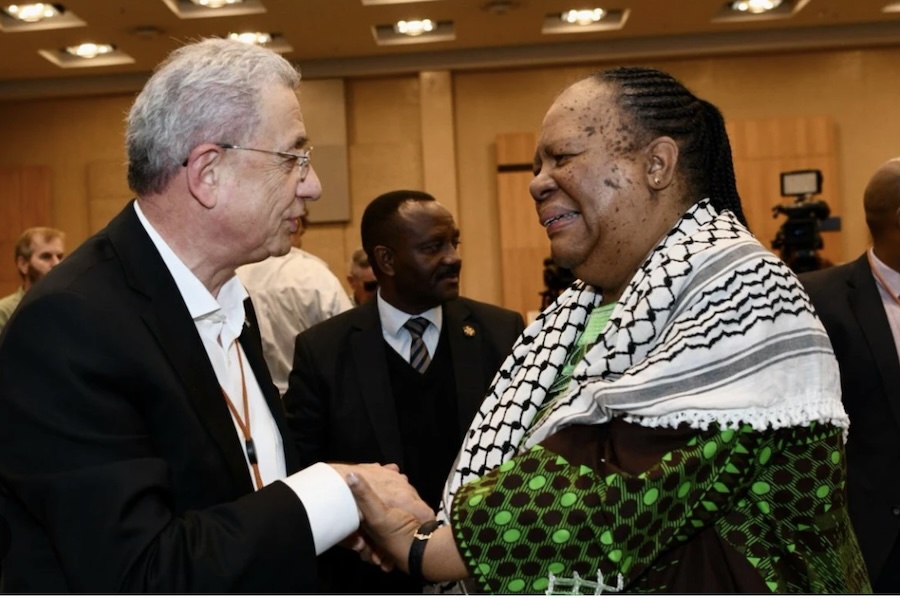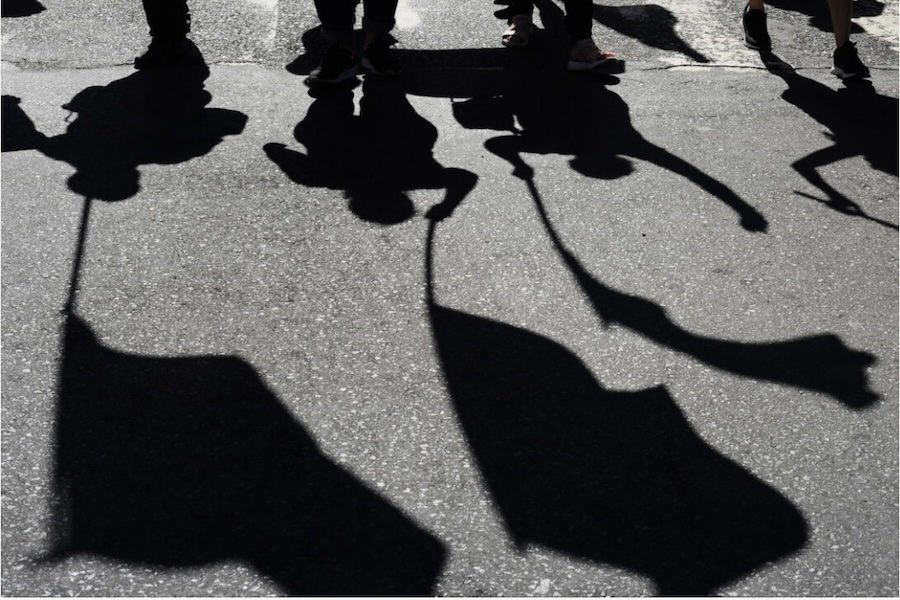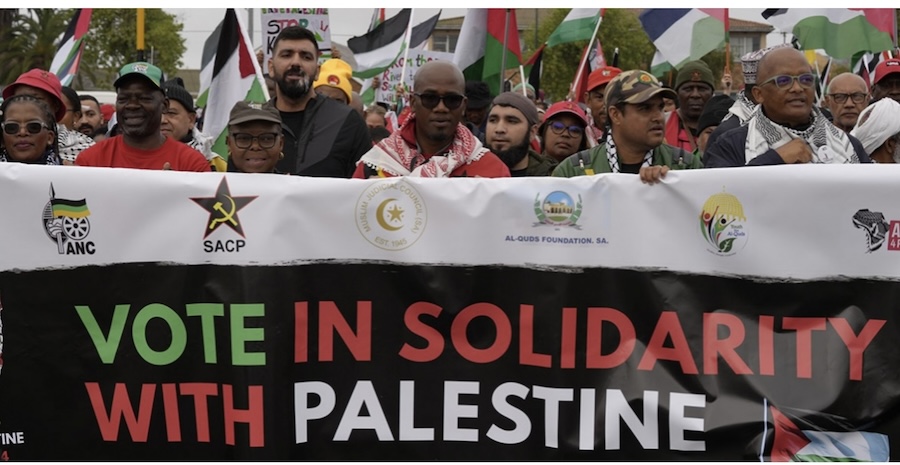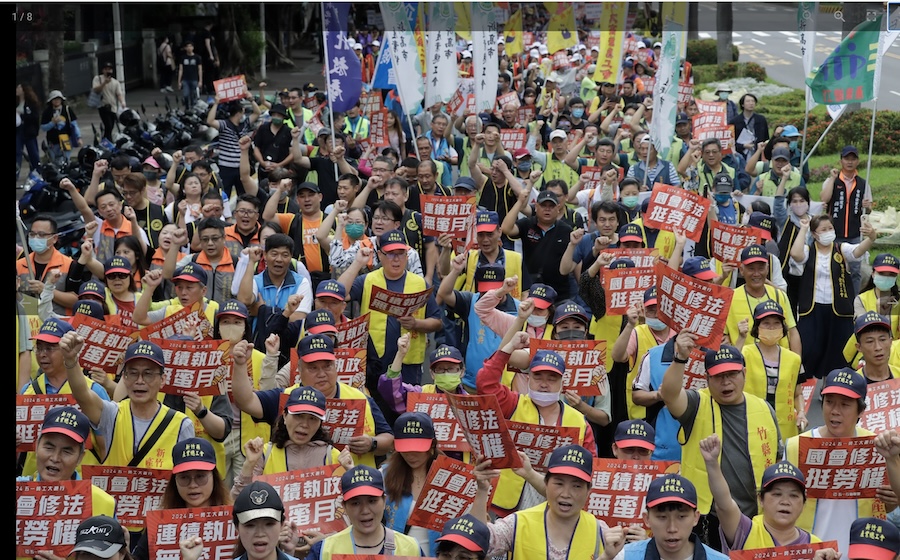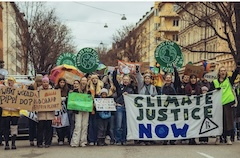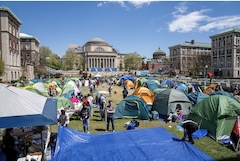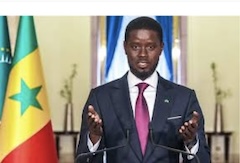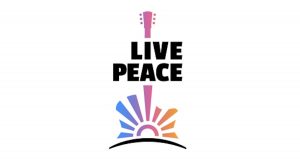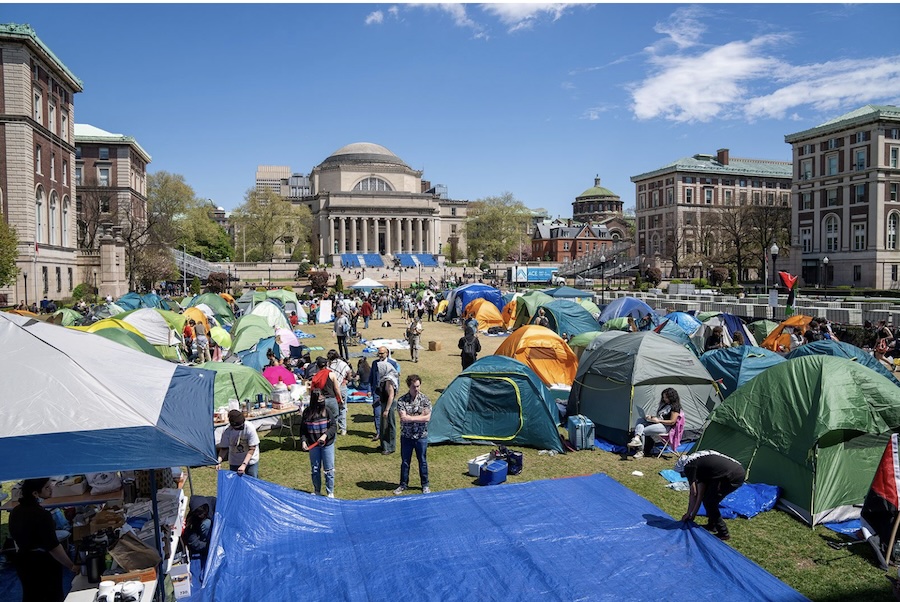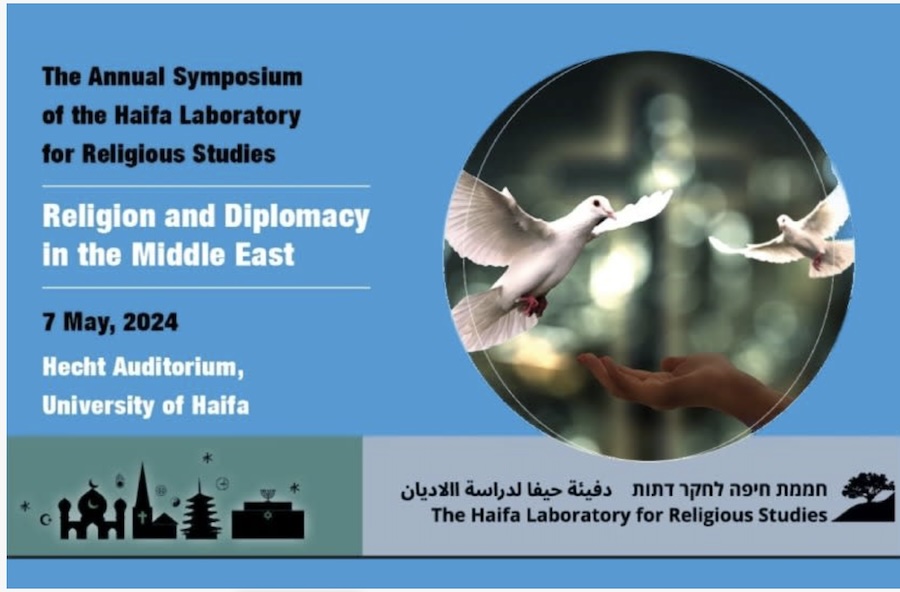. TOLERANCE AND SOLIDARITY . .
An article from the Global Campaign for Peace Education by An Anonymous Student in Washington DC*
As an Arab-American woman, an activist, and a part of the collective human community, I take it upon myself to advocate for the men, women, and children in Gaza whose suffering has largely been overlooked and tolerated by the international community. These past few weeks, I have found great hope and pride in the actions of the American students who have established college campus encampments all across the country in an effort to direct funding away from the violence in Gaza. In their dedication to speaking out for the protection of human life, their commitment to non-violence, and their courage to act regardless of legal reprimand, thousands across the globe have found hope and regained a battle cry against the Palestinian genocide that continues to unfold. Through attending the George Washington University encampment, I have seen firsthand the nature of these spaces of protest — their spirit, their power, and their peace. Today, I write not only as an advocate for the encampments but also as an advocate for democracy. The pro-Palestine student encampments are valid and effective nonviolent protests that should not only be protected by the government but supported.
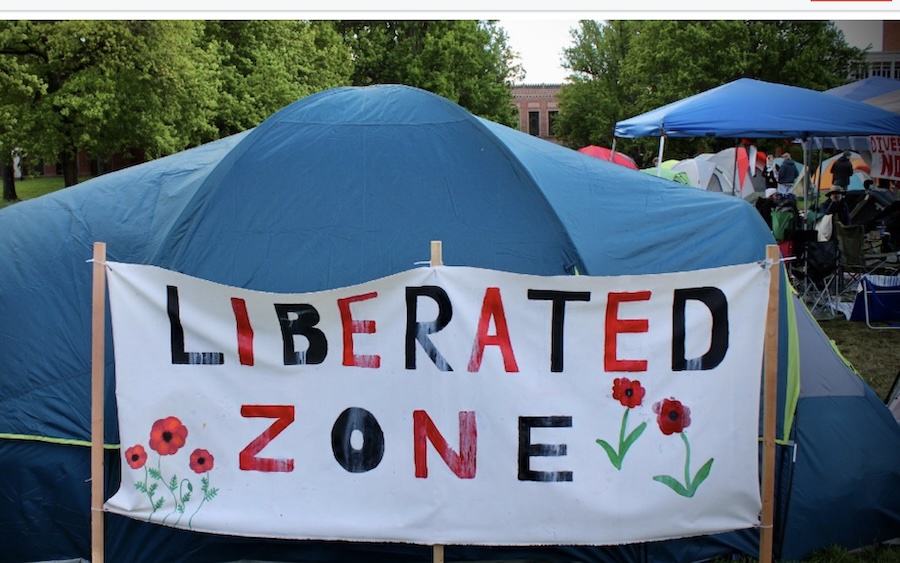 Photo Caption: Popular University for Gaza encampment at the University of Oregon demanding divestment from companies supporting Israel. Day 2, April 30, 2024. (Photo: Ian Mohr via flickr [CC BY-SA 2.0 DEED]).
Photo Caption: Popular University for Gaza encampment at the University of Oregon demanding divestment from companies supporting Israel. Day 2, April 30, 2024. (Photo: Ian Mohr via flickr [CC BY-SA 2.0 DEED]).On April 17, 2024, hundreds of student protesters occupied the South Lawn of Columbia University with demands that the university divest from companies with ties to Israel. Since then, thousands of students across the country have set up over 80 encampments, all calling for the divestment of university funds from organizations that provide financial support to the Israeli government and Israeli companies (Banerjee, 2024). Historically, sit-ins and occupations of campus buildings have been the more popular style of protest; however, the choice to hold encampments sends a message in itself. As stated by Sonal Churiwal, a sophomore at Washington University of St. Louis:
“We can do a march and one hour later it’s dispersed and no one’s there…but an encampment shows that we care and we’re willing to move our entire lives outside for a day, or however long we can, and really commit to this, because we know any inconvenience we’re facing is just a sliver of what Palestinians under occupation, under genocide, are facing” (Alonso, 2024).
Not only do the students sacrifice their comfort and convenience, but they also risk their safety and future security, as students at over 20 encampments have faced arrest charges due to ‘trespassing’ or ‘public disruption’ (Cutler, 2024). Along with the risk of arrest is the risk of harm. Most notably, on the night of April 30, violence broke out at the UCLA encampment as pro-Israeli groups attempted to tear down the encampment barricades. The ensuing clashes between protesters, police, and pro-Israeli groups lead to over 25 members of the encampment group being taken to the hospital due to injuries (Nazzal, 2024). These arrests and violence at the expense of peaceful protesters emerge from a lack of support and protection by the American government and its leaders. In fact, many members of Congress have directly spoken out against the encampments, calling them ‘un-American,’ recommending the National Guard to intervene, and requesting that federal funds be withdrawn from any campus allowing the protests to continue (Parkinson, 2024). The direct condemnation of the student encampments by national leaders has restricted the protesters’ ability to receive police protection and medical aid, putting thousands in harm’s way of police brutality and outside attacks.
The current political narrative also supports biased media coverage of the encampments’ nature and mission. Largely, the media and politicians have characterized the student encampment movement as a campaign built upon antisemitism that creates an unsafe environment for Jewish students on college campuses. These claims are not unfounded, as several protesters have expressed explicit support for Hamas terrorism and used antisemitic rhetoric against Jewish students (Campus antisemitism, 2024). In no way do I believe that these violent actions and words should be overlooked. Nor do I support antisemitism in any form, whether it be in connection to the Israel-Palestine conflict or not. However, there is much danger in directly conflating the student encampment movement with antisemitism, as this both undermines the true mission of the protest, as well as invalidates the Jewish experience of antisemitism. The encampments look to stop American university funding for Israeli military missions against Palestinian civilians, not to threaten, harm, or call for the eradication of the Jewish population. “Many of the student groups behind the protests said that individuals making inflammatory remarks [against the Jewish community] do not represent their groups or their values concerning the war in Gaza” (Alfonesca, 2024). Additionally, MIT Jews for Ceasefire criticized “school administration and politicians” for “co-opting” the Jewish “shared identity to silence Palestinian, Muslim, Arab, and Jewish students” alike (Alfonesca, 2024). They argue that blanketing all student protests as antisemitic “only serves to obfuscate real cases of antisemitism and put Jewish students at even greater risk” (Alfonesca, 2024). Therefore, the continued weaponization of ‘antisemitism’ within the political dialogue which condemns the student encampments leads to an inaccurate depiction of the protesters’ goals, undermines the genuine non-violent foundation of the movement, and puts the Jewish community at further harm of attack against their person and identity.
Since the student protests follow a legitimate framework of nonviolent methods within their behavior and organization, I look to redirect the current narrative surrounding the university encampments away from a story of hate and violence and towards one of true peaceful protest for a just cause. In his work, The Politics of Nonviolent Action, Gene Sharp researched and cataloged ‘198 methods of nonviolent action.’ Ranging from formal statements and physical intervention to drama and music, Sharp outlines a careful selection of nonviolent approaches for securing democratic rights and justice for social justice movements (198 methods). Within the past few weeks, the pro-Palestine student encampments have deployed a handful of these methods. Most notably, through a nonviolent occupation of space, but also through inviting political speakers, hosting indigenous dance groups, and directing university funds to alternative markets, among many other approaches to peaceful activism. Each encampment has its own set of values and regulations to ensure a commitment to nonviolence is upheld and enforced. At the George Washington University encampment, a whiteboard of ‘Community Guidelines’ greets protesters and visitors, outlining rules of ‘grace and patience,’ ‘respect and discipline,’ and ‘revolutionary optimism.’ The space is one of structure, transparency, acceptance, and diversity, which the media and politicians overlook within their characterizations and criticisms of the movement.
(continued in right column)
Presenting the Palestinian side of the Middle East, Is it important for a culture of peace?
(continued from left column)
The student encampments are also in full alignment with the values and instruction of peace education. Peace education looks to promote a culture of peace through transformative understanding and approaches to conflict:
“Peace education would first invite the youth or adult learners to be aware of and to understand the ramifications and roots of a particular conflict and what the possible alternatives might be…peace education elicits well-thought-out alternatives from them to work for the conflict’s resolution and transformation through nonviolent ways” (Navarro-Castro, 2008, p. 26).
Those who participate in the student encampments have heavily immersed themselves in the history and nuance of the political dynamic between Palestine and Israel. They understand that the violence of the past few months is a result of decades of oppression and apartheid, as opposed to a conflict that began on October 7, 2023. These students come to universities with a specific, nonviolent resolution to divert funds away from the Israeli military and away from the general military-industrial complex of the United States. Their demands target an end to violence, and their methods reflect the same intention. The students’ dedication to their cause through peaceful protest is a true commitment to activism through a lens of peace education. Therefore, for the government to condemn their behavior is to take a stance against peaceful, visionary protest, which is a larger stance against the promotion of a culture of peace.
In 1999, the United Nations General Assembly passed the “Declaration and Programme of Action on a Culture of Peace” (United Nations). Through the declaration, UNESCO defines a culture of peace as a “set of values, attitudes, modes of behavior, and ways of life that reject violence and prevent conflicts by tackling their root causes to solve problems through dialogue and negotiation among individuals, groups, and nations” (U.N). Through their peaceful commitment to engage in dialogue with university leaders, the student encampments uphold a culture of peace within their ‘values, attitudes, and modes of behavior.’ The protesters’ actions — leading marches to diplomatic centers, inviting speakers to discuss the history of the Palestinian region, and hosting creative projects to preserve Palestinian art and culture— align with the promotion of nonviolent change outlined in UNESCO’s frameworks of cultural peace.
As a prominent member of the UN, the United States of America holds a responsibility to both the international community and the American people to uphold and enact UN resolutions. By criticizing and attacking the encampments, American politicians directly violate the 1999 resolution which calls for “the observance of all human rights and fundamental freedoms” (United Nations). The declaration also places “special emphasis on democratic principles and practices at all levels of formal, informal and non-formal education,” highlighting students’ vital role in harnessing the democratic process to create change and promote peace (United Nations). To stand against the students is to stand against fundamental freedoms and democratic principles. While as, to stand with the encampments is to uphold the ideals outlined by the “Declaration and Programme of Action on a Culture of Peace” in promoting a collective mindset that rejects violence and fuels civil dialogue.
As a citizen of this country and a member of the democratic process, I have placed my trust and my voice in the hands of my representatives. I look to those who have been given positions of power to use their platforms to defend the rights and livelihoods of not just my fellow Americans, but also my fellow human beings. I stand behind the American people in continuing to use our voices, our power, and our presence to speak out against the genocide of the Palestinian people, and I implore American leaders to listen to us.
The student encampments are not places of hate, they are places of love where nonviolence triumphs. These student activists are not un-American, for protesting injustice through the freedom of speech granted by the First Amendment is the most American thing one could do. Therefore, if the American government is truly committed to democracy and peace, our leaders have a responsibility not only to protect but also to support the pro-Palestine student encampments.
* My decision to publish this piece anonymously caused much inner conflict and reflection. My anonymity does not come from a lack of belief in my argument, nor does it endorse a lack of willingness to associate myself with this cause. Instead, I was influenced by recent government actions that criminalize pro-Palestinian viewpoints, as well as the potential consequences of future legislation on anti-Israeli dialogue. I feel much frustration with our current political environment, which discourages free speech surrounding the Palestinian genocide. In the future, I look to continue to advocate for social justice and influence government actions to uphold human rights. However, I cannot fulfill this mission if I am prohibited from entering the political sphere due to my stance on the student encampments. Therefore, my anonymity reflects a commitment to future activism and a hope to earn a platform to further promote democracy and peace.
References
° 198 methods of nonviolent action. AEI/ Empowering Humankind. (n.d.). https://www.aeinstein.org/198-methods-of-nonviolent-action
° Alfonesca, K. (2024, April 26). Student protesters denounce antisemitism amid criticism over pro-Palestinian encampments at college campuses. ABC News.
_ Alonso, J. (2024, April 24). Students set up on encampments from coast to Coast. Inside Higher Ed | Higher Education News, Events and Jobs.
° Banerjee, I. (2024, May 2). Timeline: The “Gaza Solidarity Encampment.” Columbia Daily Spectator.
° Campus antisemitism surges amid encampments and related protests at columbia and other u.s. colleges. (2024, April 22). Anti-Defamation League.
° Cutler, S. (2024, May 1) How colleges have responded to student encampments. The Chronicle of Higher Education.
Navarro-Castro, L., & Nario-Galace, J. (2008). Peace education a pathway to a culture of peace. Center for Peace Education, Miriam College.
° Nazzal, S. (2024, May 1). After violent night at UCLA, classes cancelled, UC president Launches Investigation Into response. Los Angeles Times.
° Parkinson, J. (2024, April 30). Speaker Johnson, House Republicans ramp up criticism of “out of control” college protests. ABC News.
° U.N. International Day of peace. International Day of Peace. (n.d.). https://internationaldayofpeace.org/culture-of-peace/#:~:text=As%20defined%20by%20t he%20United,founding%20over%2060%20years%20ago%2C
° United Nations. (n.d.). Declaration and programme of action on a culture of peace. United Nations. https://digitallibrary.un.org/record/285677?ln=en&v=pdf
– – – – – –
If you wish to make a comment on this article, you may write to coordinator@cpnn-world.org with the title “Comment on Gala of Solidarity” and we will put your comment on line. Because of the flood of spam, we have discontinued the direct application of comments.

